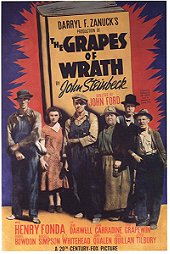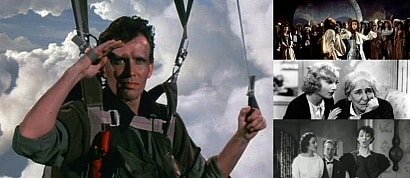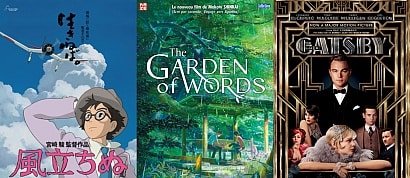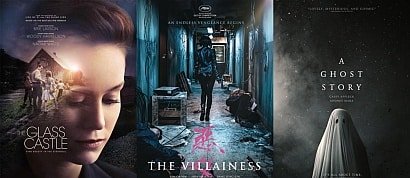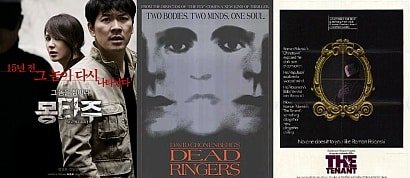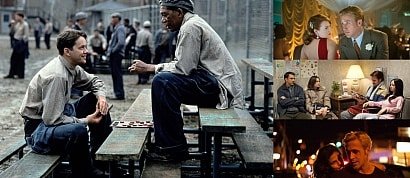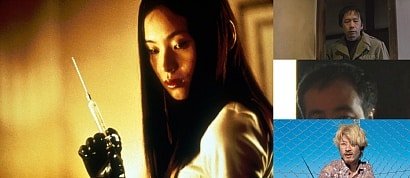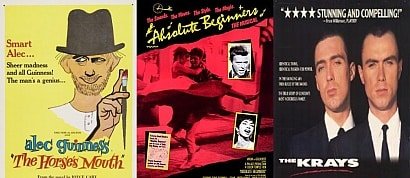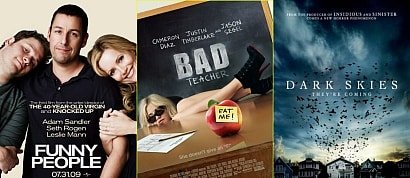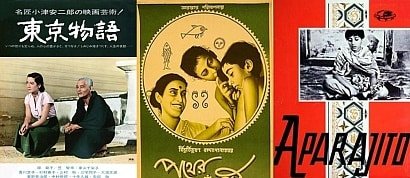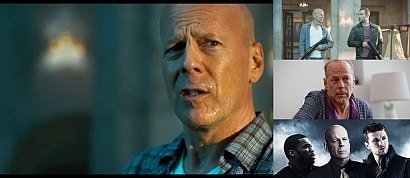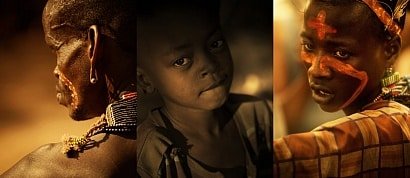The Grapes of Wrath is an almost-perfect adaptation one of the greatest novels of the twentieth century. Henry Fonda and Jane Darwell head a cast that firmly roots the movie in a realistic depiction of the tribulations and hardships experienced by Okies traveling to California. Their acting is not a series of scenes in which they get to loudly expose their acting muscles; it is a series of scenes in which they make you believe that they are real people.
Time was also a factor in the success of this adaptation. The novel was written only a year earlier, and the Great Depression was only slowly starting to come around. This was a fresh story line that had played out in people’s backyards, in their newspapers and newsreels. This was real life. The movie even plays as something akin to a documentary. Often times approaching near observational/docu-drama cinema in the ways in which characters often forgo makeup and soft lighting in order to look authentically dirty and road weary.
The cinematography approaches something so close to reality that is still an astounding accomplishment (how it lost that year's Oscar is a great question and that it wasn't even nominated is a joke). Characters are often seen in what is referred to as ‘natural lighting,’ meaning that the light that illuminates them is often from a lowly candle, the outdoor sunlight or a fire. The use of shadows is just as effective as the use of daylight. The stark, barren wasteland of Middle America is a disturbing sight to behold. How anyone managed to survive in that environment is beyond my comprehension. Even more unnerving are the numerous scenes of life on the road in the middle of the night or in a makeshift camp or in a home with no electricity. The rustling of a bush could mean so much if you can’t make out where the bush even is. You are there with the Joads throughout this entire ordeal. And it is an ordeal.
And the Joads – truly one of the fullest realized families in all of literature, even the minor characters like grandpa and grandma speak so much with so few scenes. They come from a time and an area when as man’s life, work and worth were determined by his land. They would rather die than see something happen to it. It’s all right there. And the actors speak those unsaid volumes with great acting economy. Henry Fonda gets all the praise for his performance, and it is indeed a splendid performance, perhaps his greatest (along with On Golden Pond and The Wrong Man). Fonda had the tremendous ability to always ‘be’ as an actor. You never saw him trying to become these people, he always ‘was.’ But the performance that struck me the most was Jane Darwell as Ma Joad. Specifically the scene where she sits examining odds-and-ends before they must leave their house and start the long journey to California, she pulls out a pair of earrings, holds them up to her ears and examines herself in the mirror. What she does with her face is an emotional sucker-punch with just the slightest fluctuations in her eyes.
But we now must discuss those final twenty minutes which left me confused and a little dumbstruck. Up until that point the film had followed the spirit and letter of the novel to a surprising degree. Then we come to a point in which Fonda must deliver a rousing speech that doesn't feel natural. What he speaks about is uplifting, but it comes across as a Cliff’s Notes abbreviation to what is unsaid about his character in the book. What Steinbeck accomplished through action, the filmmakers accomplish through a speech that screams Inspirational Dialogue 101. And Darwell is forced to wrap up the film in a similar fashion. The ending of the novel – a confounding, bruising, moving thing – is drastically changed to have her explicitly state what is obvious to anyone who has read the book or been paying attention during the film.
Surely, these are downgrades from the source material. Yet this ending doesn't diminish or destroy any of the good-will and artistry that the preceding experience has given us. It is an inelegant and abbreviated ending yet other than this brief but concluding detour The Grapes of Wrath is the American classic that it has been hyped to be.
People who voted for this also voted for
First Time Viewings of 2015
Rebel by their appearances in films
My inFAMOUS Movie Cast
Movie Diary April 2016
Watched in 2018
watchlist
Watched in 2014
Favorite Characters in Takashi Miike's films
Films Watched in 2014
Movies seen in 2015
Películas vistas en 2016
101 Best Asian Films I've ever seen(n y complete)
Actors who should just........... retire?
Visit Ethiopia By Watching These Beautiful Photos
BradWesley123's Movie Journal- January 2010
 Login
Login